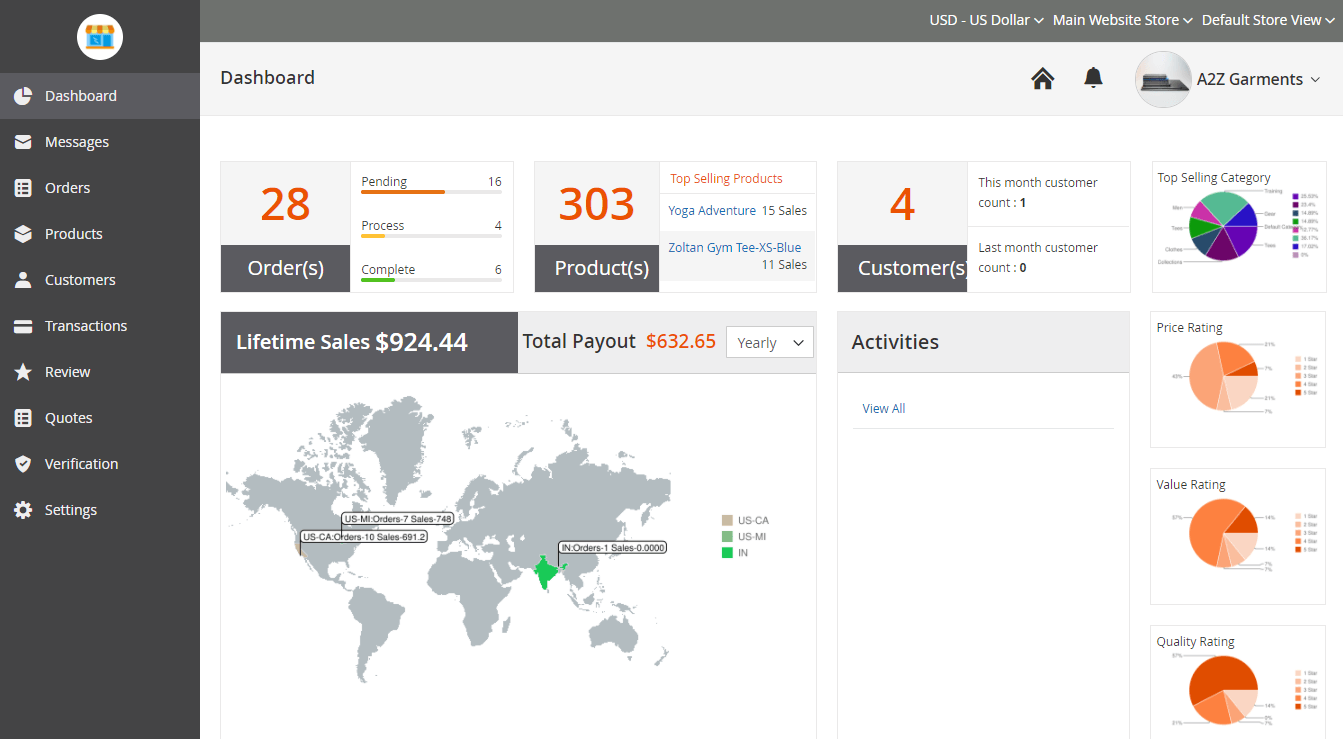An average employee has to deal with 30 and 100 projects daily with unavoidable distractions and interruptions during the day. Employees in retail and large corporations go throughcorporate restructuring, which puts their job stability at risk. These are some of the reasons 40% adults spend sleepless nights plagued withwork stress and emotional instability.
We put our emotional health at stake while experiencing stressful events at work. It becomes difficult to control our behaviors, feelings, and thoughts under pressure. As a result, coping up with life becomes more challenging.
Stress at work interferes not only with your work performance but also takes a toll on your personal life, emotional well-being, and overall health. Therefore, it is high time to take an action and learn the techniques that help you deal with work stress and improve emotional health.
Common Reasons that Lead to Workplace Stress
While there are many reasons, the most common are:
- Lack of job security – fear of being laid off at any point.
- Demanding work hours – more overtime due to cut-back on staff.
- Pressure to meet expectations – difficulty in meeting rising demands without achieving job satisfaction.
- Pressure to perform at a constant level – with no break, compensation, or perks.
- Less freedom – authorities taking charge of how you work.
Top 7 Habits that Could Save You from Work Stress
Here’s everything you need to know about relieving work stress and boosting emotional health
- Reach Out
Open about your situation with people you are close to. This simple habit can change the way how stress affects your daily life. If you allow stress to build up, it will only further damage you.
Socialization is a great way to cope with stress and blow off the steam. It also helps you to stay focused and motivated. While the person you are sharing it with may not help solve your problem, just getting it out of your system can help you regain your peace of mind.
You can:
- Reach out to your co-workers for empathy and support
- Find your solace with family
- Share it out with your friends
- Indulge in Journaling
Emotional health is closely associated with our physical health. When our mind is stressed, it not only affects our emotional well-being but also our physiological functions. Journaling has shown great benefits in addressing these issues. In fact, it is a key practice for stress management.
The practice generally involvesmaintaining a journal or diary where you put down your thoughts and feelings about your life and events. It is a great stress-management tool when your focus is on emotional processing.
Put down whatever you feel in detail, especially related to stressful workplace events and brainstorm solutions. You can even share it with someone you are close to for discussing topics for finding answers.
- Indulge in meditation
There are several forms of meditation that can offer you great de-stressing benefits. Luckily, it is accepted by various cultures as a spiritual, healthy practice.
Dedicate a few minutes daily to meditation and reap amazing benefits that wipe stress off your life. As a daily practice, meditation is also great for emotional stability. When meditation is practiced on a long-term basis, it can build natural resilience.
Practice whichever form of meditation you find beneficial.
- Get Enough Sleep
Waking up early in the morning, working late night, and rotating shiftscan compromise on your sleep quality. Sleep deprivation is a major factor that affects work performance and productivity, which further makes you vulnerable to work stress.
It is important to adjust your sleeping pattern by enjoying a peaceful sleep at night. Avoid distractions, work, socializing, and any engagements and activities that keeps you from sleeping.
Make your room dark and cozy to encourage sleepiness. If you want to indulge in something positive, this is the perfect time to practice meditation to enjoy even better sleep. Once your sleep schedule is fixed, you will notice a boost in your performance and productivity, which in turn can help you relieve work stress by working more efficiently.
- Organize and Prioritize
Some tactics can be handy when workplace stress becomes threatening. Organizing and prioritizing are practical steps allow you to take control and avoid overwhelming situations.The idea is to create a balance in your schedule. If all you focus is on work, you may feel burned out too soon. Prioritize and adjust a balance between family, work, daily responsibilities, social activities, etc.
It is important to plan regular breaks from lunch even if it only a short one. It helps you recharge and relax. Organizing your life around a healthy schedule will make you more efficient and productive at work.
- Resist perfectionism
Our own bad habits and negativity can worsen workplace stress. The key is to turn things around by breaking these bad habits to take better control of things.
The first step is to avoid perfectionism. Stress begins when you try to achieve unrealistic goals. If you are setting yourself up for something too hard to get, you are likely to fall short. Be practical when you are setting goals for yourself or for the organizations. Be true to your real capabilities.
Avoid negative thoughts and focus on the positive aspects of every situation. This will save you both motivation and energy.
- Be clear about your job description
Employer-imposed stress can be easily dealt with if you are clear about your workplace duties. Uncertainty can lead to helplessness and eventually stress. The best way is to be clear about your job requirements and responsibilities. Speak to your employer or ask your supervisor to provide you with an updated description.
Not only it will put you in a stronger position but will also offer you self-satisfaction regarding the parameters of your workplace duties.
Final Work
From stress to emotional instability and back to stress – it is a vicious, never-ending cycle until you try to get over it. These steps mentioned above will help you address the root cause and relieve work stress. Remember, if stress becomes overwhelming, seek professional help. Contacting mental health professionals is easy thanks to the implementation oftelemedicine apps. Once you can take care of that, you will find more emotional stability.
AUTHOR BIO:
Judy Robinson is a passionate health and lifestyle blogger. She loves to write on healthy lifestyle, fitness 101 and DIY related topics. Follow @judyrobinson for more updates.















